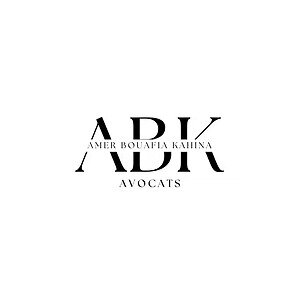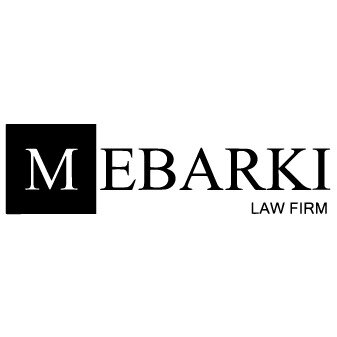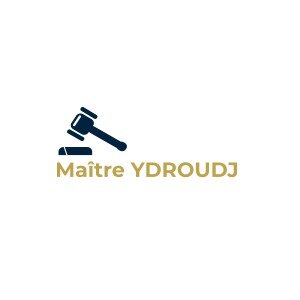Best Project Finance Lawyers in Algeria
Share your needs with us, get contacted by law firms.
Free. Takes 2 min.
Or refine your search by selecting a city:
List of the best lawyers in Algeria
About Project Finance Law in Algeria
Project finance is a legal and financial structure commonly used for funding large-scale infrastructure and industrial projects. In Algeria, project finance has become increasingly relevant in sectors such as energy, transport, water, and public works. This method typically involves creating a separate legal entity for the project, with repayment of the financing based on the cash flows generated by the project rather than the balance sheet of its sponsors. The legal landscape around project finance in Algeria is shaped by various regulations governing public-private partnerships, foreign investment, lending practices, and sector-specific requirements.
Why You May Need a Lawyer
Project finance transactions in Algeria often involve complex agreements, negotiation with multiple stakeholders, compliance with both local and international laws, and significant amounts of capital. You may need a lawyer in situations such as:
- Drafting and reviewing loan agreements, concession contracts, or joint venture agreements
- Negotiating terms with government ministries or state-owned enterprises
- Navigating compliance with Algerian investment and banking regulations
- Facilitating approvals or permits required for the project
- Resolving disputes with contractors, suppliers, or government bodies
- Advising on risk allocation, project insurance, and guarantees
- Understanding tax implications and incentives for project finance
- Carrying out due diligence on land ownership, environmental compliance, and local regulations
Local Laws Overview
Algeria's legal framework for project finance is governed by several key laws and regulations. The Commercial Code, the Civil Code, and various sector-specific laws form the backbone of project finance regulation. Key highlights include:
- Foreign Investment Law: Algeria encourages foreign investment but has restrictions on majority foreign ownership in certain sectors. The 51-49 rule (requiring majority Algerian ownership) has been relaxed in recent years for non-strategic sectors.
- Public-Private Partnerships (PPP): PPPs are regulated by specific ordinances and allow for collaboration between the public sector and private investors.
- Banking and Financial Regulations: The Bank of Algeria regulates the financial sector, including rules for syndicated loans, security interests, and currency exchange controls.
- Land and Environmental Laws: Projects require careful compliance with zoning, land acquisition laws, and environmental protection regulations.
- Procurement Laws: Public projects are subject to public procurement rules, which set out competitive bidding requirements and transparency standards.
- Securities and Guarantees: Legal provisions exist for lenders to obtain security interests, though enforcement can be challenging and involves registration with local registries.
- Tax Laws: There are tax incentives available for some strategic investments, but understanding applicable taxes and exemptions is crucial.
Frequently Asked Questions
What is project finance?
Project finance is a method of funding major projects where repayment is based primarily on the project's own cash flows, rather than the assets or creditworthiness of the sponsors.
Who can invest in project-financed projects in Algeria?
Both domestic and foreign investors can participate, though certain sectors may have ownership limits or require government approvals for foreign participation.
Are there restrictions on foreign ownership in Algerian project finance?
Yes, there are sector-specific restrictions. Many sectors have relaxed the 51-49 rule, but strategic areas like hydrocarbons still impose foreign ownership limitations.
What types of projects commonly use project finance in Algeria?
Power plants, water treatment facilities, transport infrastructure, renewable energy, and mining projects are common candidates for project finance.
What legal documents are involved in project finance?
Typical documents include loan agreements, off-take agreements, concession agreements, security documents, shareholder agreements, and government guarantees.
How is security for financing typically structured in Algeria?
Lenders may secure their interests through pledges on project assets, receivables, mortgages, and sometimes government guarantees, subject to local law conditions.
What are the main regulatory bodies involved?
The Ministry of Finance, the Bank of Algeria, sector-specific ministries (like Energy or Transport), and local investment promotion agencies often play major roles.
How does dispute resolution work for project finance contracts?
Parties can agree to resolve disputes through local Algerian courts or international arbitration, especially for contracts involving foreign investors.
Are there tax incentives for project finance in Algeria?
The government provides certain tax incentives for strategic projects and for investments in specific sectors or under certain development programs.
Do projects require environmental approvals?
Yes, most large projects require an environmental impact assessment and approvals from environmental agencies, which are mandatory for issuance of necessary permits.
Additional Resources
Several resources and organizations can support your understanding and involvement in project finance in Algeria:
- Ministry of Finance - Directorate General for Investment
- National Agency for Investment Development (ANDI)
- Bank of Algeria
- Ministry of Energy and Mines
- Algerian Chamber of Commerce and Industry
- Local bar associations for referrals to specialized lawyers
- International financial institutions operating in Algeria, such as the World Bank and African Development Bank
Next Steps
If you need legal assistance with project finance in Algeria, consider the following steps:
- Identify the scope and needs of your project, including investment size, sector, and stakeholders.
- Consult with a lawyer experienced in Algerian project finance to discuss regulatory requirements, contracts, and risk management.
- Collect all necessary documentation related to your project, including business plans, financial forecasts, and permits.
- Engage with relevant government bodies early in the process to clarify approval procedures and timelines.
- Review and negotiate all agreements carefully to ensure regulatory compliance and adequate protection for your interests.
- Consider the method and forum for dispute resolution in your contracts to ensure enforceability and clarity.
These steps will help you prepare for the complexities of project finance and mitigate legal and financial risks involved in Algeria.
Lawzana helps you find the best lawyers and law firms in Algeria through a curated and pre-screened list of qualified legal professionals. Our platform offers rankings and detailed profiles of attorneys and law firms, allowing you to compare based on practice areas, including Project Finance, experience, and client feedback.
Each profile includes a description of the firm's areas of practice, client reviews, team members and partners, year of establishment, spoken languages, office locations, contact information, social media presence, and any published articles or resources. Most firms on our platform speak English and are experienced in both local and international legal matters.
Get a quote from top-rated law firms in Algeria — quickly, securely, and without unnecessary hassle.
Disclaimer:
The information provided on this page is for general informational purposes only and does not constitute legal advice. While we strive to ensure the accuracy and relevance of the content, legal information may change over time, and interpretations of the law can vary. You should always consult with a qualified legal professional for advice specific to your situation.
We disclaim all liability for actions taken or not taken based on the content of this page. If you believe any information is incorrect or outdated, please contact us, and we will review and update it where appropriate.
Browse project finance law firms by city in Algeria
Refine your search by selecting a city.












